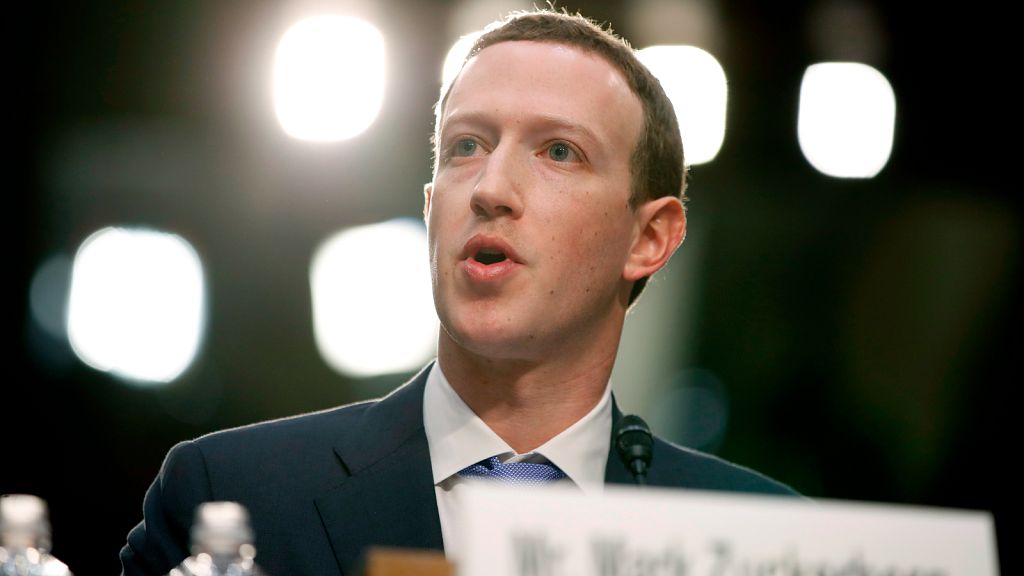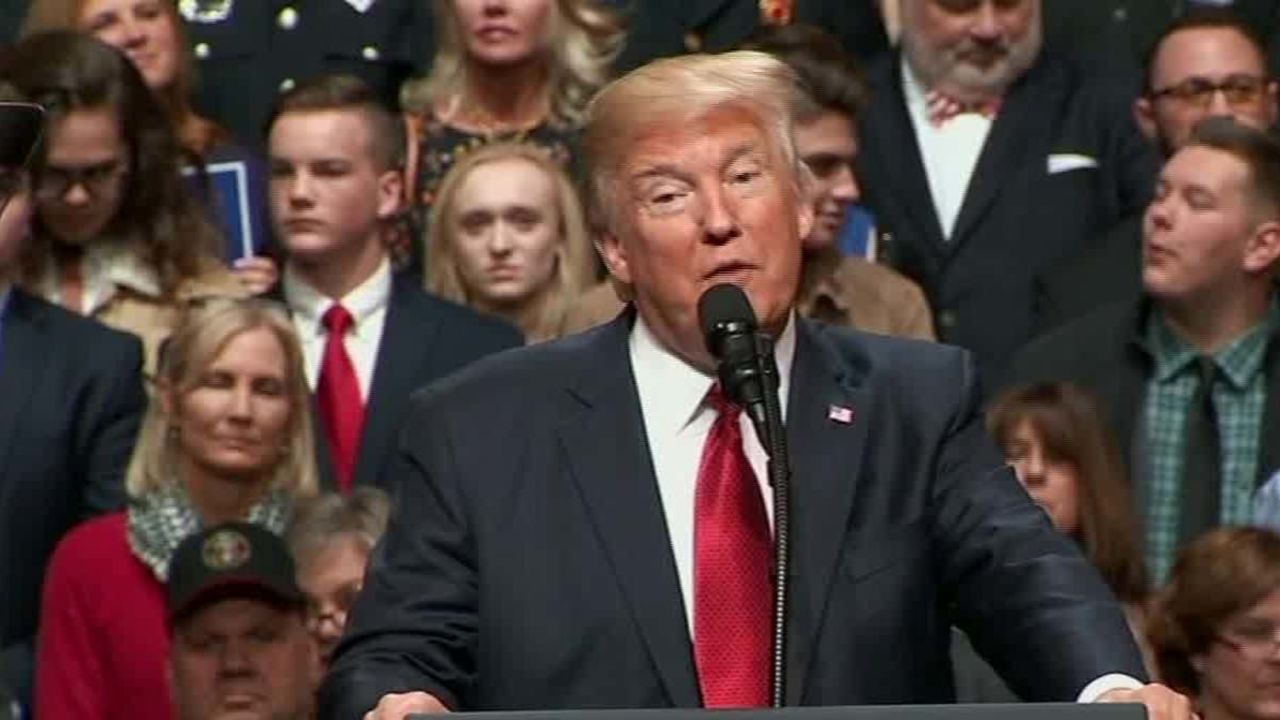How Trump's Presidency Will Shape Zuckerberg's Leadership At Meta

Table of Contents
The unexpected intersection of Donald Trump's presidency and Mark Zuckerberg's leadership at Meta (formerly Facebook) dramatically illustrates the profound impact of political events on tech giants. Trump's tumultuous four years fundamentally reshaped the challenges and strategies Zuckerberg faces, leaving an indelible mark on Meta's trajectory and the future of social media. This article explores how Trump's presidency continues to influence Zuckerberg's leadership at Meta, setting the stage for a new era of heightened regulation and evolving content moderation strategies.
<h2>The Rise of Misinformation and its Impact on Meta's Policies</h2>
<h3>Trump's use of social media during the 2016 election and beyond</h3>
Trump's masterful use of social media during the 2016 election and throughout his presidency significantly impacted the spread of misinformation and disinformation. His frequent use of platforms like Twitter and Facebook to disseminate controversial statements, often without fact-checking, created a fertile ground for the proliferation of fake news.
- Examples: Trump's repeated claims of widespread voter fraud, his promotion of conspiracy theories, and his inflammatory rhetoric targeting political opponents all contributed to a climate of distrust and polarization.
- Impact: The spread of misinformation via these platforms directly influenced public discourse, impacting election outcomes and societal cohesion. This forced Meta to confront its role in facilitating the spread of falsehoods and adopt new content moderation policies.
This forced Meta into a reactive position, grappling with accusations of not doing enough to combat the spread of misinformation and election interference. The company subsequently implemented stricter policies regarding content moderation, aiming to identify and remove fake news, but the battle continues. The challenge of balancing free speech with the responsibility of curbing the spread of harmful content remains a central issue.
<h2>Increased Scrutiny and Government Regulation</h2>
<h3>The intensified political pressure on social media companies during and after Trump's presidency</h3>
Trump's presidency marked a turning point in the relationship between tech giants and governments worldwide. The intense political pressure on social media companies during and after his term led to increased scrutiny and a surge in proposed regulations.
- Examples: Congressional hearings investigated Facebook's role in the spread of misinformation, antitrust investigations targeted Meta's market dominance, and various proposed legislative actions aimed to regulate big tech's power.
- Impact: This increased scrutiny significantly impacted Meta's business model, forcing it to invest heavily in lobbying efforts and to adjust its strategies to navigate the evolving regulatory landscape. Zuckerberg's public image also suffered, with increased calls for greater accountability and transparency. The pressure extended beyond the US, with international regulators also increasing their focus on data privacy and antitrust concerns.
The ongoing debate about data privacy, censorship, and the appropriate level of government intervention continues to shape Meta's operations. Navigating this complex regulatory environment is a significant challenge for Zuckerberg's leadership.
<h2>The Impact on Meta's Algorithm and Content Moderation</h2>
<h3>The evolving strategies of Meta in response to criticism about algorithmic bias and the spread of harmful content</h3>
The criticism leveled at Meta concerning algorithmic bias and the spread of harmful content prompted significant changes to the platform's algorithms and content moderation strategies.
- Examples: Meta has implemented new content moderation tools, invested in AI-powered detection systems for hate speech and misinformation, and made adjustments to its news feed algorithm to reduce the spread of polarization.
- Ongoing Debates: The efforts to combat polarization and harmful content are ongoing, and the debate surrounding free speech versus platform responsibility remains contentious. Concerns about shadow banning and algorithmic bias continue to fuel criticism. Finding the right balance remains a significant challenge.
These changes represent a significant shift in Meta's approach, acknowledging the platform's role in shaping public discourse and its responsibility to mitigate the spread of harmful content. However, the effectiveness of these changes and the long-term impact on public discourse remain open questions.
<h2>Zuckerberg's Leadership Style and Reputation</h2>
<h3>How Trump's presidency influenced Zuckerberg’s public persona and leadership style</h3>
Trump's presidency significantly impacted Zuckerberg's public persona and leadership style. The increased scrutiny and criticism forced him to adopt a more defensive and reactive approach.
- Examples: Zuckerberg's responses to Congressional hearings and public criticism became increasingly measured, reflecting a shift in his public relations strategy.
- Impact: This period shaped his approach to crisis communication and his relationship with policymakers. He had to address concerns about data privacy and the platform’s role in shaping political narratives.
The need to manage Meta's reputation effectively during a period of intense political pressure has fundamentally altered Zuckerberg's leadership style and public image. The challenge of maintaining trust and credibility in the face of ongoing criticism remains a key aspect of his ongoing leadership.
<h2>Conclusion: How Trump's Legacy Continues to Shape Zuckerberg's Meta</h2>
Trump's presidency has irrevocably changed the landscape for Meta and its leadership. The increased regulation, the ongoing battle against misinformation, and the evolving challenges of maintaining a balance between free speech and platform responsibility are lasting impacts. Zuckerberg's leadership at Meta will continue to be shaped by these challenges, requiring adaptation and strategic shifts to navigate the complex political and regulatory environment.
To further engage with this topic, research current regulatory changes affecting social media companies, explore the ongoing debate on content moderation, and follow Zuckerberg’s public statements and Meta's policy updates. The legacy of Trump's presidency and its continued influence on Zuckerberg's leadership at Meta remains a critical and evolving area of study.

Featured Posts
-
 Experts Link Trumps Budget Cuts To Increased Tornado Season Risks
Apr 24, 2025
Experts Link Trumps Budget Cuts To Increased Tornado Season Risks
Apr 24, 2025 -
 Will Liam Die The Bold And The Beautiful Spoilers Reveal A Critical Health Scare
Apr 24, 2025
Will Liam Die The Bold And The Beautiful Spoilers Reveal A Critical Health Scare
Apr 24, 2025 -
 Nba All Star Saturday Night Herro And The Cavaliers Reign Supreme
Apr 24, 2025
Nba All Star Saturday Night Herro And The Cavaliers Reign Supreme
Apr 24, 2025 -
 Future Of Utac Chip Tester A Chinese Buyout Firms Decision
Apr 24, 2025
Future Of Utac Chip Tester A Chinese Buyout Firms Decision
Apr 24, 2025 -
 Land Your Dream Private Credit Job 5 Crucial Dos And Don Ts To Follow
Apr 24, 2025
Land Your Dream Private Credit Job 5 Crucial Dos And Don Ts To Follow
Apr 24, 2025
